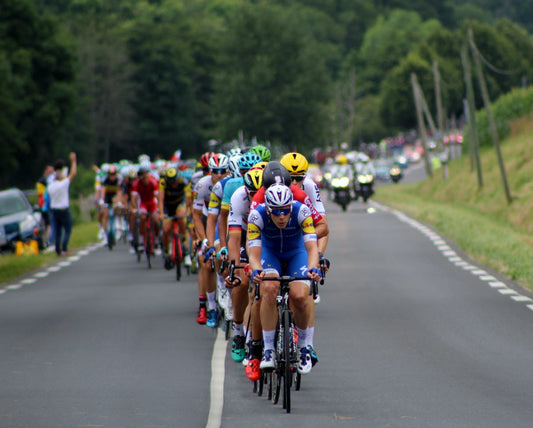klas-ik
noun
A long-distance endurance cycling event
Example usage: I'm planning to ride in the next classic.
Most used in: Europe, particularly in France, Belgium and Italy.
Most used by: Touring cyclists, recreational cyclists, and competitive cyclists.
Popularity: 8/10
Comedy Value: 2/10
Also see: Gran Fondo, Randonnée, Brevet, Cyclosportive,
The Meaning of the Cycling Term 'Classic'
In the world of cycling, the term 'classic' is used to distinguish a particularly important and prestigious event. These events often feature long distances and challenging terrain, and are usually held on a yearly basis. The most famous cycling classics include the Tour of Flanders, Paris-Roubaix, and the Giro di Lombardia.
The Tour of Flanders is held in the Flanders region of Belgium and covers a total distance of 254 kilometers. The race is known for its cobblestone roads and steep hills, making it a difficult and demanding event. The Paris-Roubaix, another classic cycling event, is held in northern France and covers a distance of 257 kilometers. The race is renowned for its cobblestone roads and is considered one of the most difficult one-day events in cycling.
The Giro di Lombardia is the final classic of the year, held in Italy and covering a distance of 248 kilometers. The race is known for its rolling hills and stunning scenery, making it a favorite among many cyclists. Additionally, the Giro di Lombardia is the last major event of the cycling season and is often used as a final test of a cyclist's form.
These three events are considered the most prestigious and difficult in cycling, and are known as the cycling classics. They attract the best riders in the world and are highly sought after by many professional cyclists. Furthermore, they are often used to gauge the form of a rider in the lead-up to the major tours, such as the Tour de France.
The Origin of the Cycling Term 'Classic'
The term 'classic' is now widely used in the world of cycling, and is typically used to describe the most prestigious one-day bicycle races. But where did this term originate?
The first known use of the term 'classic' in cycling was in 1921, when the French newspaper L'Auto described a race as a 'classique' or 'classic'. This was the first use of the term in the context of cycling.
Since then, the term 'classic' has been used to refer to the most important one-day races in cycling, such as the Tour of Flanders, Paris-Roubaix, and Milan-San Remo. These races are often referred to as the 'Monuments' of cycling, and are considered to be the most important and prestigious races in the sport.
The term 'classic' is now widely used in the cycling world and is a way to denote the most important and prestigious races in the sport. It is a term that has stood the test of time and is now used to describe the most important one-day races in cycling.












